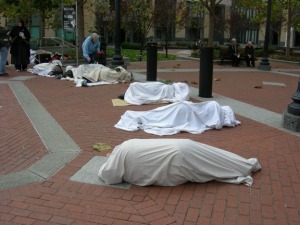https://judyabl.wordpress.com/2015/06/04/a-rc-woman-priests-homily-for-corpus-christi-sunday-life-saving-blood-6715/
Homily for Corpus Christi-6/7 2015: Life Saving Blood Transfusions
Today we celebrate the Body of Christ, the fullness of what Jesus, the Christ, gave for the life of the world and the fullness of what we, as members of his Body, the church, are to give to one another and to the poorest and “least” amongst us.
The readings for this Sunday speak of ancient and current rituals and deep symbolic meanings. In an era when some theology chooses pretty and ethereal words like ‘stardust’ and ‘cosmic Christ’ and evoke beautiful pictures from the Hubble telescope to capture the essence of who we are and who Christ is, this Sunday the church focuses boldly and solidly on “the most holy body and blood of Christ” or the solemnity of Corpus Christi, literally the Body of Christ.
How truly amazing, complex and beautiful the human body is. From infancy through old age, in health and in illness, beauty and grace and wonder are embodied in us. When one part of the body is hurt we can still see how other members compensate for that loss and the body still functions. After major stomach surgery two and a half years ago I am still going strong. Not the same as before, but strong. How resilient the body is. We can see the face of God in one another. The body, not the stars above, is the single greatest metaphor for the miracle of creation and life. What an amazing miracle to have God embodied in Christ and giving God’s self for the world, and that our God knows intimately what it is to laugh and fear and hurt, and to love, to suffer and bleed as we do. We too are embodied and far from being celestial our bodies often remind us of how precious and fragile life is.
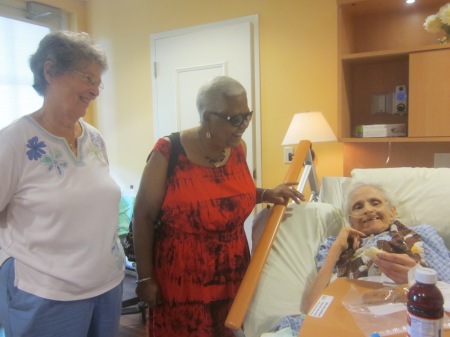 Pastor Judy Beaumont and Stella Odie-Ali with Claire Powley.
Pastor Judy Beaumont and Stella Odie-Ali with Claire Powley.
And some of our precious little ones.
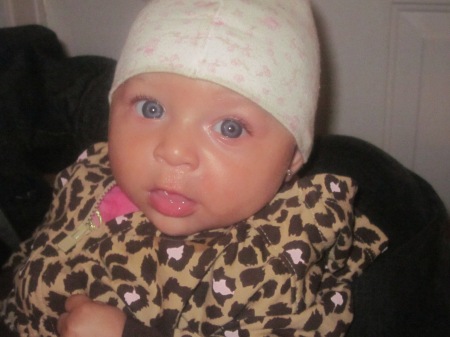
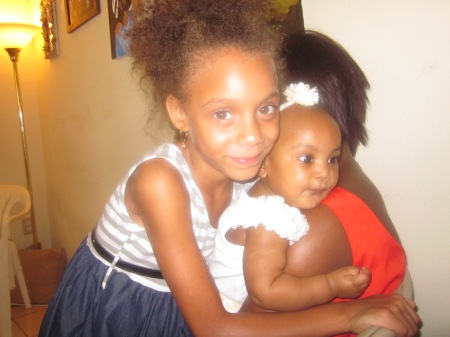
It is a temptation to choose only feel-good words as God-words and to avoid words like body, blood, broken, poured out and death lest we offend or lose the faint- hearted. I literally use the word ‘faint’ as I recall that my beloved Grandmother, the tree of life and faith for me, wanted me to become both a missionary( there were no women clergy back then) and a nurse (she didn’t know any women Doctors either). In High School I thought that would be my path until my best friend sustained a major cut on her hand while preparing food. There was no car available so her sister and I wrapped up her hand, put our arms around her and walked her quickly one block to St. Mary’s Hospital. I was fine until they began to sew the wound and blood spurted out. I fainted then and there. When I woke up we were all outside and she was ready to go home. I knew then I would not be a nurse because I could not deal with blood. Yet we miss the true meaning of the Gospel today if we cannot deal with blood. And by now, I see blood in a totally different light.
When my Grandmother was operated on for what turned out to be a cancer that had already spread out of control the family was asked to donate blood as she had many transfusions to keep her alive. Each one did and it was not enough. Then one by one the members of my young adult group at the church came forward and gave their blood. Some of them were as repelled by blood as I was, but it didn’t matter- they came through. I was so thankful for them. They could not save her life, but their selfless gifts may have saved someone else’s life. And most importantly their love surrounded us and helped us to get through the worst time of my young life.
In our work with the homeless we learned that many must sell their blood to survive. One man, Mike, explained to me that he no longer needed to sell blood after his Social Security and Veteran’s benefits started, but he continues because he knew that his gift would save lives. He felt that he had little else to offer but was thankful to be alive and to have a home now and he wanted to continue to give something back so others could also live. I was thoroughly moved that this person who had been through so much wanted to give the best he had to help others. Remarkably he also cares for the many stray cats in his apartment complex.
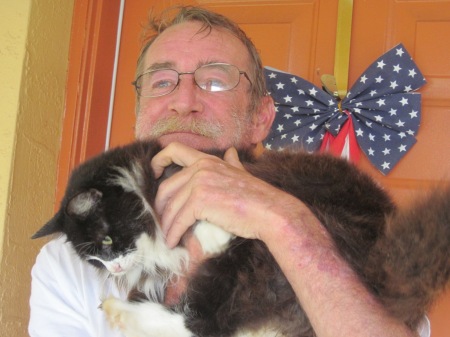
In 2005 Pastor Judy Beaumont was diagnosed with a rare type of Leukemia called APL. Her white cell count bottomed out and her blood was unable to nurture her body. This was a time of much prayer of the faithful and much love for her. Some of our church members also gave blood to be banked for her. She had massive infusions of chemo and was hospitalized for almost a month when she sustained infections during this time of lowest immunities. She needed blood and platelet transfusions. As I sat with her through these I could see the color return to her face and the energy return to her body. I could literally see the life giving properties of blood. I could hear the old hymn in my head “There is power, power, wonder- working power in the blood, of the Lamb….” While I cannot hold with sacrificial atonement I accept that it was an early belief of God’s Hebrew people and I know for sure that there is power in the blood, and in the giving of blood for love. Now, I welcomed the sight of blood and thanked God for it. And, within two years, thanks be to God and prayer and an excellent Cancer Doctor, James Reeves, she was pronounced cured of this cancer. She has now been free of it for ten years and remains an active and energetic servant of God.
Her understanding of the role of Christians before, during and after her bout with leukemia is to follow Christ- “body broken, blood poured out”. This simply, and not so simply means, to give your ALL in loving and serving God and one another. As she said in a sermon given in 2012, “(We put ourselves in the bread and in the wine to be changed even as the bread and wine are changed into Christ we too are changed into the body and the blood of Christ)…. Just think of what a different world we would have if all those who claim to be Christian really make it important to be life-giving to others. So when today you hear the words: You are the Blood of Christ, say back your AMEN (I agree) and mean it-YES, I believe I am the blood of Christ and I will be life-giving for others. This change of bread and wine, of you, of me, of the church, of us-such change is possible because Jesus says so: “This-and you- my body. This and you-my blood. Do this and remember me”. And we will answer by saying AMEN to what we are.
Theologian Megan McKenna (author of On Your Mark: Orbis Books, 2006) tells a story from the Viet Nam war era that corresponds to the Gospel (Mark 14) where Jesus offers his own life, his body and blood, as symbolic of the new covenant. During that tragic war an orphanage was bombed. One little girl was losing blood fast and needed a transfusion. The other children were asked and were too frightened to comply. Finally one little boy came forward. He cried and watched the little girl’s face to see if new life was entering her. Finally a Vietnamese woman was able to talk with and comfort him. When asked why he was finally able to calm down, she explained that he thought he was dying because she got his blood and his life. “Then why did he do it”, the doctors asked? He said simply: “She’s my friend, I had to help her”. Ah yes, this is exactly what Jesus did, as he said (John 15:13-14a) “There is no greater love than to lay down one’s life for one’s friends, and you are my friends….” (TIB).
I reflect here too on the transfusions the church needs to really be the Body of Christ. It needs to be compassionate to all, a friend to all, including all and excluding no one at the Table. It needs, as Pope Francis has said, to return to simplicity and a priority for serving the poor. It needs to become more Christ-like. “It “ I say, but I simply mean “we”. We need the transfusion of the holy blood of Christ to become life giving as Christ was.
The readings from Exodus (24:3-8) and Hebrews (9:11-15) speak of blood as sealing the first covenant and the new covenant between God and God’s people. We still say important promises are “sealed in blood”, though we do not mean it literally. The Gospel (Mark 14:12-16, 22-26) shows how far God was willing to go for God’s friends-for us. For telling the truth and showing us how to love God and one another, Jesus met painful rejection, suffering and a violent death. Yet his essential non-violence and selfless giving wins out in resurrection and life eternal, for him and for us. McKenna quotes theologian David Hamm reflecting on this Last Supper: “Now they are quite literally given Jesus’ cup to share. Continuing to be his disciples will entail a full giving of self somehow like his. Such laying down of one’s life-in a loving service that may or may not include martyrdom-is the life-blood of the covenant community called the body of Christ. Jesus’ giving of his blood provides not only the model but the source of this new covenant life….Sharing in the sacramental body and blood entails behaving as one body by donating the gift of life to one another. (“The Word’, America, May 24, 1997).
Reflect with me on how it feels to give yourself away so others may live. In our Tuesday ministry this week Lauretta, a formerly homeless woman who had as she describes, “been to hell and back” shared that she was full of joy because she was welcomed to do volunteer service at a local food bank. Everyone listened and clapped as she described what she did and how happy it made her feel to give others food and hear that it was appreciated. Roger was the first man we helped out of homelessness in Fort Myers, some seven years ago now. His unstable diabetes is still life threatening. He said that he has found meaning in his life by helping other needy people like Jesus did and as our ministry does. He brings a donation in a white envelope every time he comes and it is marked as “Roger’s Foundation for the Poor”. He asks that we give it directly to someone in need and we are very happy to do so. Gary, formerly homeless and an elder in our church who leads Sunday Liturgy with us, listened carefully as I told the group of my recent emotional and spiritual struggle with violence and drive by shootings in our community and how it depleted my energy until I realized that there was nothing I could do about it except to keep on serving, preaching and loving with the heart of God. I could not change people’s loyalty to the “ghetto code” of tolerating violence out of fear and misplaced loyalty, but God could. Gary literally beamed and said that he was so glad I would keep loving “our people” with the heart of God because that gave him strength to do that too-we needed each other. Indeed, he has to live where the bullets fly but he is not afraid anymore because he is consumed by love. All I could add was AMEN!
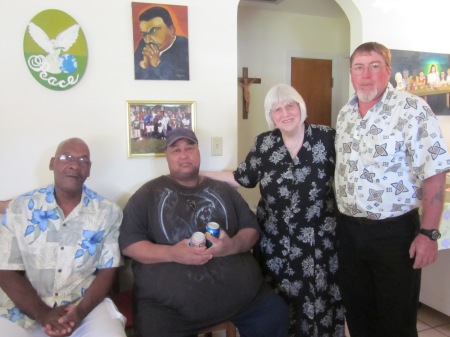 Mr. Gary, Roger and Linuel with Pastor JudyL
Mr. Gary, Roger and Linuel with Pastor JudyL
But here I can add that loving with God’s heart, serving God’s poor and struggling people, is often as hard as it is joyful and only through prayer and the support of all of the Body of Christ can we do it. And so, before you take Holy Communion and hear those words again ask yourself “Am I willing to be the body and blood of Christ? And if you are, give yourself away and start praying.
Love and blessings,
Pastor Judy Lee, RCWP










